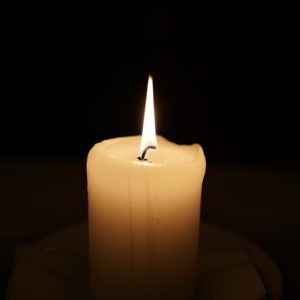Editor’s Note: For another viewpoint, see Counterpoint: What I’m Really Voting For
Though most of us don’t live near Washington, D.C., President Trump seems to be everywhere — a rally on television, on our news feeds, on Twitter — constantly on Twitter — spewing racism, misogyny, hateful statements about fellow citizens and neighbors, and flat-out lies.
The Christian church wouldn’t normally condone these things.
But somehow the Christian community in America has caught the Trumpism virus. And white evangelicals have overlooked the darkness they have advanced and participate in, because they enjoy having a perceived “ally” in the White House.
Twenty years ago, had I pulled aside pro-family Franklin Graham and said, “One day, you will support a president who’s bragged about sexual assault and has been credibly accused by dozens of women of the very actions he bragged about,” he would’ve looked at me like I was crazy.
Ten years ago, had I pulled aside pro-life Eric Metaxas and said, “In the near future, you’ll be supporting a guy who will lie and intentionally downplay the severity of a global pandemic until over 210,000 Americans will die,” he would’ve laughed.
Five years ago, imagine if I’d pulled aside Christian lawyer and free speech advocate Jay Sekulow and told him, “You will one day lay your whole reputation on the line for a man who doesn’t even remotely respect or understand the First Amendment and will disperse tear gas on American citizens so he can hold a Bible over his head for a photo op.” He might even be offended.
And yet, here we are.
This refusal to deal with the president’s spiritual darkness has caused the church and the culture to lose the narrative. We’re so used to spiritual darkness, we can’t even recognize it. Or — worse — we seem to embrace it. (For example, Metaxas is now so taken with this Trumpism he punched a protester.)
Christians have lost our standing and witness in our society, because we are as racist, materialist, politicized, violent and polarized as the culture around us — and unfortunately sometimes “leading” the way in those dark categories. The church needs to repent, because the nation’s survival depends on it.
It’s not enough to stand against the darkness in ourselves. We must also stand against the darkness in our land. Fighting Trumpism is fighting a spiritual battle against evil, because certain virtues transcend this moment, year and White House.
That doesn’t mean I’m pro-Joe Biden. I will likely disagree with most — or possibly even all — of his policies. Yet, he is a normal, patriotic man who’s not going to try to bring out the worst in us.
Although many believed having a president with an “R” beside his name in the White House — in concept following the “right” policies — would make America great again, that gambit came at a profound cost.
He mocks people regularly: the disabled, the prisoners of war, people who have spouses less attractive than his, United States senators, all political rivals, people from — in his words — “s**thole countries,” people who wear masks during COVID, people who listen to scientists, southerners, people who believe Black Lives Matter, and even, reportedly, his own evangelical supporters. The only people he won’t insult are white supremacists. According to the Washington Post Fact-Checker, he has now told more than 20,000 lies while in the White House, while consistently undermining American institutions and allying himself against American institutions with foreign adversaries.
How tragic that Trumpist lies, contempt, racism and misogyny are now fully associated with a Christian faith with core principles of truth, love, acceptance and care.
That’s why some of us who have traditionally described ourselves as conservatives, Republicans, evangelicals or Christians through the years, have been tempted to shed these names since Trump claimed to advance our causes. We want to distance ourselves from the divisive lies, hatred and extremism — the Trumpism — currently sweeping the land.
After the decline of our church and its role in our nation over the past decades — accelerating these last few years — we need to rebuild our principles of faith, virtue and the republic.
And as Christians and Americans, we need to stand against this darkness, confident that as one important first-century Christian told us — “the light shines in the darkness, and the darkness has not overcome it.”

